Culture of Oracle Bone Inscription Well Inherited, Developed in Ancient City in Central China
Oracle bone inscription, an ancient form of Chinese writing that was engraved on animal bones and turtle plastron for divination during the late Shang Dynasty (1600-1046 B.C.), is the source of Chinese characters and the root of the fine traditional Chinese culture. It was included on the UNESCO Memory of the World Register five years ago.
Three thousand years later, an ancient city in central China's Henan Province inherits and develops the inscription in brand new ways to protect and revitalize the ancient form of Chinese writing.
Anyang City is where the World Heritage Site Yinxu, or the Yin Ruins, locates. It is the ruins of the late Shang Dynasty capital and a major excavation site of oracle bone inscription.
Oracle bone inscriptions can be seen everywhere in Anyang, which is known as the "capital of Chinese characters," such as the grand Shang-style buildings, oracle bone inscription ornaments on the outer walls, the public service advertisements of the ancient inscriptions and the ubiquitous street signs contrasting oracle bone inscriptions with simplified Chinese characters.
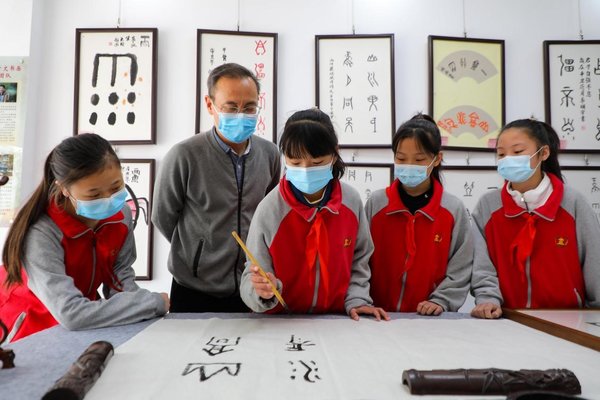 |
| Students learn Chinese calligraphy featuring oracle bone inscriptions in a primary school in Anyang, central China's Henan Province, April 18, 2022. [People's Daily Online/Ma Xiaoran] |
Anyang has never stopped its efforts to safeguard the root of the Chinese civilization and carry forward the fine traditional Chinese culture.
An "oracle bone script classroom" held by the National Museum of Chinese Writing in Anyang has hosted over 1,500 activities on the culture of Chinese characters. These activities were joined by more than 45,000 families and 80 state-level experts in characters, history and other cultural disciplines.
Anyang has built 17 schools with education on oracle bone inscriptions at provincial level and 37 at municipal level. Besides, the city has set up a number of oracle bone inscription-themed book houses in communities, parks, factories, schools and villages.
As oracle bone inscriptions become a part of everyday life in Anyang, more and more people in the city are getting to know the ancient form of Chinese characters and attracted to it.
Anyang has paved a unique path to the protection and utilization of cultural relics by bringing relevant cultural industries closer to the people.
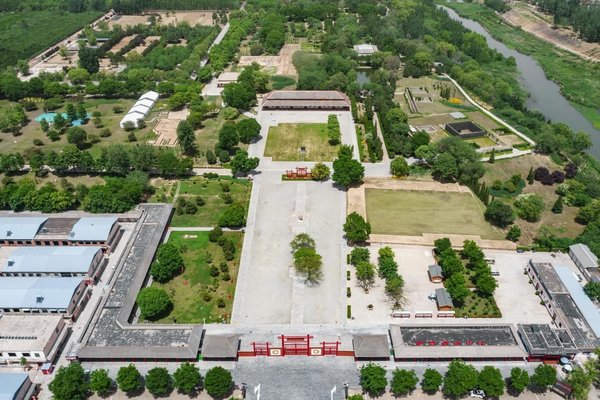 |
| Photo shows an ancestral temple at the World Heritage Site Yinxu, Anyang, central China's Henan Province. [People's Daily Online/Ding Junhao] |
Over recent years, the city has vigorously promoted the integrated development of the cultural and tourism sectors to expand the influence of Chinese civilization.
For instance, an archaeology-themed tourist site is well underway in the city, making progress towards a world-class archaeological cultural experience area.
The expansion project of the National Museum of Chinese Writing is also about to be completed with another four themed exhibition areas. A Chinese character-themed park will also open to the public soon, providing six areas displaying the origin and development of Chinese characters.
A museum for the World Heritage Site Yinxu is expected to be put into use the next year. It will serve as an international platform for studying and displaying oracle bone inscriptions and the Shang culture. Besides, a national archaeological park has begun construction in the city.
Anyang is also using digital technologies to build new scenarios for the display of oracle bone inscriptions. The managing company of Yinxu and other relevant departments jointly developed three non-fungible tokens, with each being issued 10,000 copies. "All of them were sold out in five seconds," said Shen Weiwei, general manager of the company.
A number of oracle bone inscription-themed cultural products became hot sellers, including memes, blind boxes and ice cream, thanks to cultural activities launched in the city. Besides, dramas and movies related to the ancient form of Chinese characters are also on the rise.
"We aim to make alive oracle bone inscriptions and bronze ware collected at museums by promoting integrated development of culture and tourism sectors," said Xue Wenming, head of Anyang's culture, broadcasting, sports and tourism bureau.
(Source: People's Daily Online)
Please understand that womenofchina.cn,a non-profit, information-communication website, cannot reach every writer before using articles and images. For copyright issues, please contact us by emailing: website@womenofchina.cn. The articles published and opinions expressed on this website represent the opinions of writers and are not necessarily shared by womenofchina.cn.

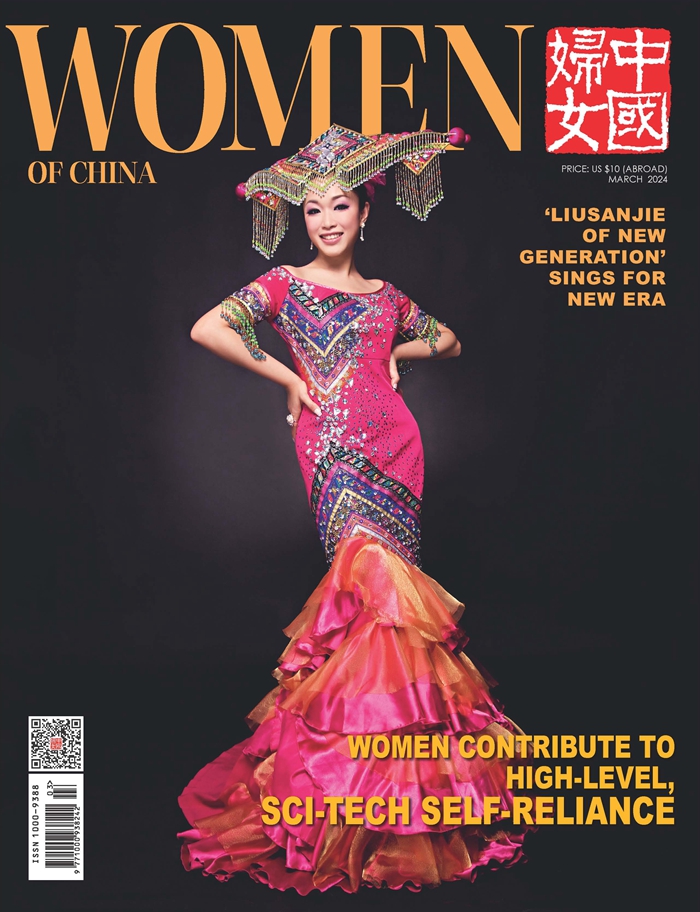
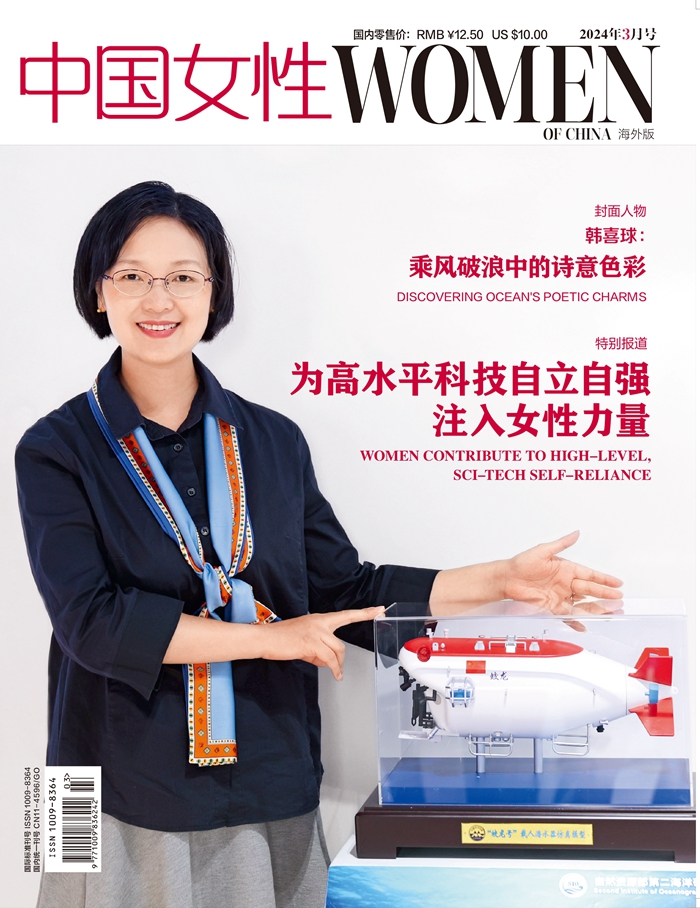


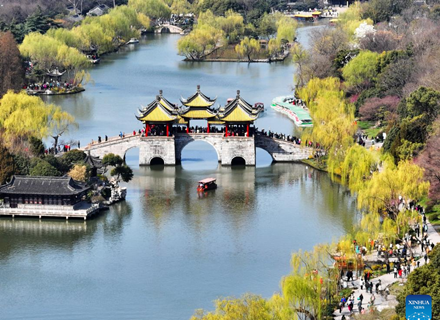


 WeChat
WeChat Weibo
Weibo 京公网安备 11010102004314号
京公网安备 11010102004314号